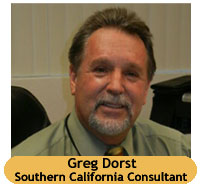California Lawyers Association
The Healthy Lawyer (Advocati Sani)
By Greg Dorst, JD, CADC II
Consultant to The Other Bar

The vast majority of lawyers in California are hard working and conscientious; they have a desire to do what is right and complete any work they have been hired to do thoroughly and to the best of their ability. This is why we became lawyers, to do for others what they are unable to do adequately for themselves. Our skills are valuable because the stakes are high. Businesses rely on steady advice to avoid legal entanglements. Individuals wish to remain free from incarceration and prosperous; and redress for injury, both personal and financial, is difficult unless one knows how to proceed. Such is the world of law. Complicated and serious.
Pressurized and stressful. The adversarial system we have adopted creates winners and losers complete with vindication and suffering. Lawyers not only have to handle the “nuts and bolts” of the case, including all of its complexities, but we must also be skillful in handling tragic circumstances and outcomes. All of our attention, it seems, all of the time is focused outward, toward other people’s problems and tangible solutions. The days are short and time is money. Taking an objective look at our own physical, mental, emotional and spiritual health drops off the “to do” list.
One particular focus of attorney wellbeing has made its way into national prominence. In 2016, the American Bar Association in conjunction with Hazelden/Betty Ford completed a study of licensed and employed attorneys to discover the depth and breadth of life and career-threatening behavior amongst attorneys nationwide. The study focused on problematic drinking and drug use as well as depression and anxiety. The results were reported in the Journal of Addiction Medicine as well as most legal publications and were hailed as the most comprehensive study concerning lawyers to date. The study concluded that 21 percent of licensed, employed attorneys qualify as problem drinkers, 28 percent struggle with some level of depression and 19 percent demonstrate symptoms of anxiety. The project leader, Patrick R. Krill stated, “Any way you look at it, this data is very alarming, and paints the picture of an unsustainable professional culture that’s harming too many people. Attorney impairment poses risks to the s ruggling individuals themselves and to our communities, government, economy and society. The stakes are too high for inaction.”
The question then becomes, what kind of action do we take and who will take it? Thus far, awareness of the problem has been confined to an MCLE requirement on the subject of Competency: Substance Use Disorders and Mental Health Concerns in the Legal Profession.
Raising awareness around the problem is the first step. Taking action to solve the problems highlighted in the study may take introspection and willingness. We do know that creating healthy personal practices or habits will go a long way toward preventing the types of problems addressed in the study. However, “prevention” is not a treatment for an existing condition; treatment has as its goal recovery, and recovery does not happen without change. Change requires different thinking and different action, and that can be difficult.
Our thinking and actions can be a bit like a wagon that has been drawn by a horse on a dirt road for decades. The wagon’s wheels have created ruts in the dirt road that have deepened over the years. The wheel ruts become so deep that the wagon is unable to change course even though the horse and driver desperately want to travel in a different direction. Such are the ruts in our lives; it is difficult or impossible to change course. Asking for help to make the necessary changes may be the hardest thing that a lawyer ever has to do. It is important to know that you don’t have to live that way anymore, there is confidential help for issues that seem insurmountable.
Here are some resources:
calawyers.org/health-and-wellness
www.otherbar.org
http://calbar.ca.gov/lap
www.drugabuse.gov
www.nami.org
www.aa.org
www.samhsa.gov/find-treatment
www.samhsa.gov/find-help/national-helpline
This is the first in a series of columns dealing with issues of attorney wellbeing. I encourage readers to provide suggested topics which will allow us to explore attorney wellbeing more deeply. Simply email me at gdorst2@gmail.com with suggestions and questions and I will endeavor to provide best practices, strategies and cutting-edge science to this space with the overall goal of healing, health and awareness, for all of us who either practice law or support those who do.
